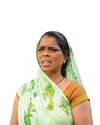
HEATED DEBATES on climate finance between developed and developing country groups hijacked the recently concluded conference of the UN Framework Convention on Climate Change (UNFCCc)'s Subsidiary Body 58 (SB 58) in Bonn, Germany. The conference, held between June 5 and June 15, was the last opportunity for countries to prepare frameworks for adoption at the upcoming 28th Conference of Parties (COP28) to UNFCCC in UAE in December.
Participants took nine of the 10 days to accept the agenda for the conference. Their disagreement revolved mainly around an agenda item on the mitigation work programme (MWP) introduced by the European Union, which the developing countries insisted puts an unjust mitigation burden on them, while sidelining the developed world's commitment to transfer money and technology for equitable climate mitigation and adaptation.
Bolivia, on behalf of Like-Minded Developing Countries (LMDCS), introduced a separate agenda on finance in line with Article 2.2 of the Paris Agreement that talks about equity, common but differentiated responsibilities and respective capabilities. "All these are code words for justice," a negotiator from the LMDC group said in a closed-room meeting with non-profits. Ultimately, rich countries did not want to discuss providing more finance and developing countries would not discuss stronger mitigation targets without finance being provided.
This story is from the {{IssueName}} edition of {{MagazineName}}.
Start your 7-day Magzter GOLD free trial to access thousands of curated premium stories, and 9,000+ magazines and newspapers.
Already a subscriber ? Sign In
This story is from the {{IssueName}} edition of {{MagazineName}}.
Start your 7-day Magzter GOLD free trial to access thousands of curated premium stories, and 9,000+ magazines and newspapers.
Already a subscriber? Sign In

On shaky ground
Despite reporting net gains in green cover, the latest forest survey shows degradation of natural forests, particularly in ecologically sensitive hotspots

Burden of proof
The government's drive for e-KYC verification to ensure rightful targeting of beneficiaries has proved exclusionary for many

Rupee slide impacts agricultural trade
THE UNION Cabinet on January 1, 2025, approved the extension of a subsidy package of ₹3,500 per tonne on di-ammonium phosphate (DAP) for companies.

THE 500 GW SWITCH OVER
Coal is the king of energy at present. India needs to dislodge it with clean energy for an equitable green transition

MANIFESTING 500 GW
Ensure that renewable energy is available round the clock.Establish a viable market and reward those who take lead

Lifting a curse
How Gangabai Rajput helped her water-scarce village in Madhya Pradesh let go of superstition and revive an ancient waterbody

HOLD THEM SACRED
The Supreme Court has recommended that the Union government create a comprehensive policy for the governance and management of sacred groves across the country

REPORT CARD 2024
Coal is still the king in terms of electricity generation. But new renewables, mainly solar power, have shown an impressive growth

'India a laboratory for seismologists'
India is no stranger to earthquakes. In recent memory, Latur and Bhuj districts in Maharashtra and Gujarat witnessed devastating tremors in 2003 and 2001 respectively. Such quakes leave clues that can aid preparations for future events, say seismologists KUSALA RAJENDRAN, professor, Indian Institute of Science, and CP RAJENDRAN, adjunct professor, National Institute of Advanced Studies. The Rumbling Earth-The Story of Indian Earthquakes, captures their work on historical as well as recent quakes. In an interview with ROHINI KRISHNAMURTHY, they discuss the science of earthquakes, why the Himalayas are due for a huge event and why prediction remains a challenge. Excerpts:

Capturing Siang
As India pushes for a mega-dam on the Siang river to counter China's upstream projects, the Adi tribal community of Arunachal Pradesh fears losing ancestral land